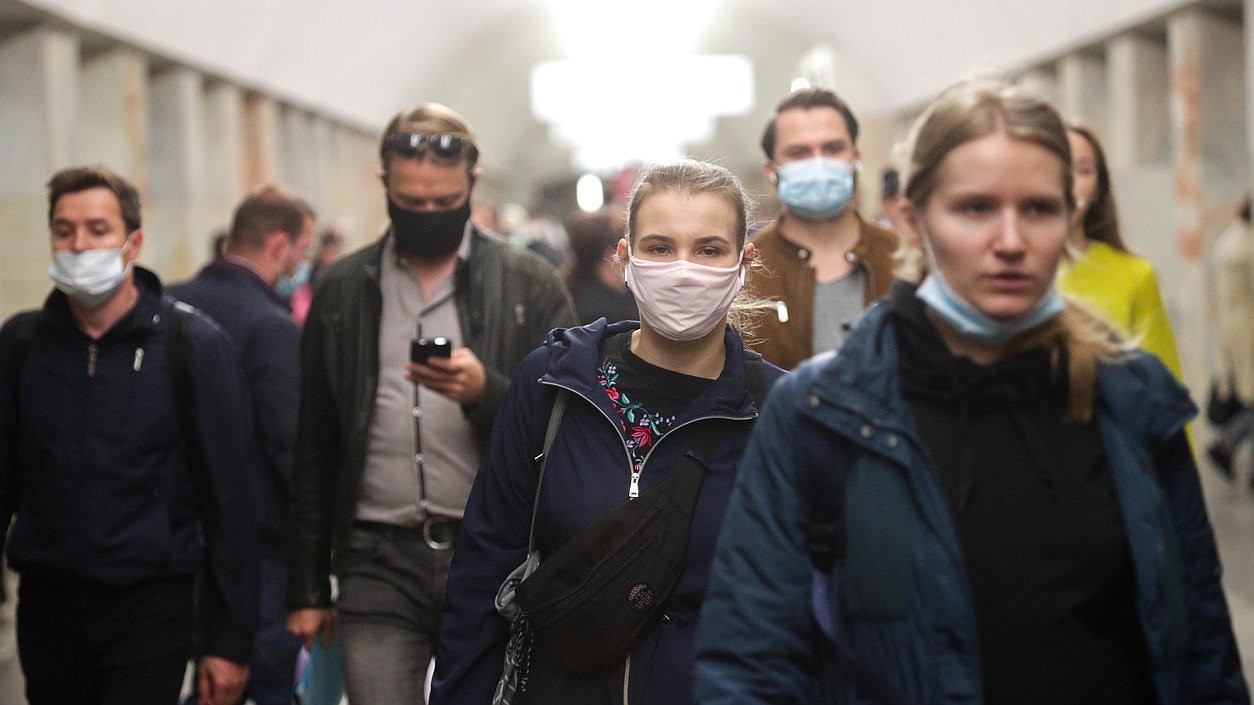
Russia Monitor is a review of the most important events related to Russian internal and external security, as well as its foreign policies.
Date: 31 October 2021
Russian Nationwide Shutdown Will Stop Pandemic, But Not For Long
In the last week of October, some Russian regions entered a lockdown. The nationwide shutdown is in force since October 30 and is expected to end on November 7 to stop a surge in coronavirus infections and deaths. But as the Russians are reluctant to get vaccinated, these measures will be short to stop the pandemic.

Russia saw 1,003,000 new Covid-19 infections in October, setting a new monthly high since the pandemic started worldwide and a 70 percent increase month to month. The previous record-high number was in December 2020 when 864,000 cases were confirmed. But it is only now that there were more than one million new infections. The national coronavirus task force on October 30 reported 40,993 new infections over the previous day, tallying a new record of Covid-19 cases in the country. Two days before, Russia confirmed record-high 1,163 Covid-related deaths. The death toll has been more than a thousand for many days now. There is a shortage of beds at intensive care units across the country. According to official government data, some 1.3 million people in Russia are now being treated for Covid-19, of which 268,000 remain in hospitals, 10 percent in critical condition. Russia’s overall coronavirus death toll in the pandemic is officially more than 230,000, but this rate is likely to be higher as regional authorities did not report everything when the pandemic broke out. Russia’s collapsing healthcare system is overwhelmed with an influx of Covid-19 patients. State authorities announced countrywide ‘non-working days’ from October 30 to November 7 to curb the further spread of the virus. Some regions went into lockdown a few days before. Only essential shops like supermarkets and pharmacies are allowed to open. Hairdressing salons, fitness clubs, swimming pools, cafes, restaurants, and cinemas were closed. Also, non-essential services such as laundries or car repairs were ordered to shut. Only industrial plants and those businesses that provide services to city infrastructure are allowed to stay open. Healthcare facilities, also private, and courts were not closed. Schools are shut while university students are sent home for remote learning. This lockdown could stop the current wave, but only for a couple of months. Just a third of the Russians have been vaccinated so far. While encouraging people to get vaccinated, Russian President Vladimir Putin refused to make a coronavirus jab mandatory throughout Russia. He placed this burden on regional authorities to make them blame for inadequate measures to contain the virus. And how to encourage hesitant people if the Kremlin propaganda is disseminating anti-vaccination messages outside Russia?
Support Us
If content prepared by Warsaw Institute team is useful for you, please support our actions. Donations from private persons are necessary for the continuation of our mission.
All texts published by the Warsaw Institute Foundation may be disseminated on the condition that their origin is credited. Images may not be used without permission.















